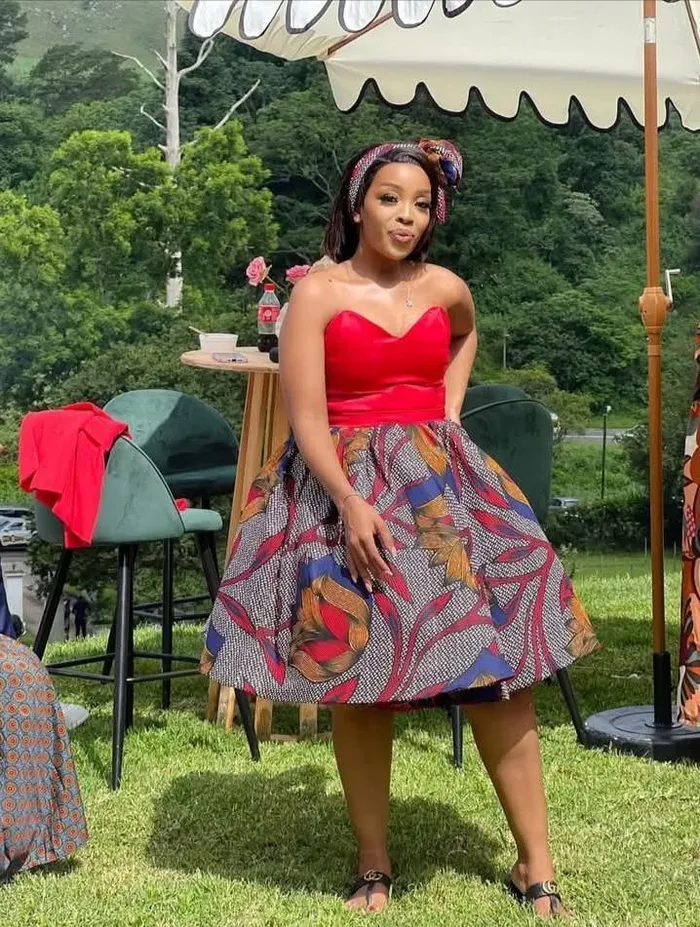Protests against illegal foreigners growing countrywide

Induna Nkosikhona "Phakelumthakathi" Ndabandaba during the protest against illegal foreign nationals in March in Durban .
Image: Doctor Ngcobo
A WAVE of anti-illegal immigration protests that began in Durban in March this year is gaining momentum, with demonstrations set to spread to major cities across South Africa today.
Marches are scheduled for KwaZulu-Natal, Gauteng, Eastern Cape, and Free State, as the drive to curb the influx of undocumented foreign nationals in the country gathers momentum.
The initial protest took place in March, when hundreds of demonstrators marched from King Dinuzulu Park along Dr Pixley Ka-Seme Street to the Durban City Hall.
Organisers have confirmed that today’s protest will follow the same route into Durban's CBD.
Today's protests has been dubbed " national shutdown", with similar demonstrations set for Johannesburg, Tshwane, and Mangaung. Organisers claimed these cities were among those heavily affected by the presence of undocumented foreigners.
One of the movement's driving forces is Jacinta Ngobese-Zuma, a presenter at Vuma FM, who has been vocal in rallying support for the protests.
“Our march is against illegal immigrants. It’s not that we’re against foreigners, but there needs to be control. When the system fails to document and manage the number of foreigners entering the country, it becomes unsustainable. These individuals are not contributing to the economy, and many are involved in criminal activity,” she said.
Ngobese-Zuma added that undocumented migrants posed challenges for law enforcement, as it was difficult for them to be traced when crimes occurred.
She also criticised businesses that employed undocumented workers to bypass labour regulations.
As part of their demands, protesters have called on the government to issue a 30-day ultimatum for all illegal immigrants to voluntarily leave the country. She denied that the movement was xenophobic, and said, “We simply want our country to be a safe place again.”

The brains behind the march against illegal foreigners Jacinta Ngobese-Zuma.
Image: Facebook
The Durban march in March saw several speakers link the country’s surging crime rate and job scarcity to the presence of undocumented foreigners. Many alleged that local businesses preferred hiring undocumented migrants because they could be paid less and employers could flout labour laws.
The Department of Home Affairs reported that 46 898 undocumented immigrants were deported in the 2024/25 financial year, an 18% increase from the previous year’s 39,672 deportations.
Vela Masondo, one of the organisers of the Durban march, confirmed to Daily News that today’s protest will once again follow the previous route through the city centre.
“We are ramping up pressure on the government to address the problem of undocumented foreigners. This issue affects many citizens, and we expect a large turnout,” said Masondo.
He vowed that the marches would continue until authorities take decisive action by heeding to their calls for illegal foreigners to be ejected from the country.
Protests will also take place in key KZN towns, including Pietermaritzburg, Newcastle, Estcourt, and Vryheid.
Mlungisi Zondi, who will lead the Pietermaritzburg protest, said marchers will proceed along Langalibalele Street to the provincial legislature, where they would hand over a memorandum of demands.
“We are taking a stand to reclaim our country from illegal foreigners. They are destabilizing our communities, and the government must act,” said Zondi.
In Ladysmith, local activist Luyanda Madondo lauded people for backing the movement, saying, “The citizens are finally taking a stand. The government must listen to those directly affected by the influx of undocumented foreigners.”
In Johannesburg, protesters will march from Nelson Mandela Children’s Hospital in Parktown to the Gauteng Provincial Legislature.
Meanwhile, in Tshwane, the march will begin at the old Putco bus depot on Struben Street, Marabastad, and end at the Union Buildings, the official headquarters of the South African government, housing the executive – led by the President Cyril Ramaphosa.
Various organisations, including Operation Dudula, were expected to participate in today’s demonstrations. Operation Dudula has previously led a series of protests against illegal foreign nationals in the country.
Political parties such as the uMkhonto weSizwe Party (MKP), ActionSA, IFP, the Patriotic Alliance (PA), and the ANC and traditional leaders have expressed support for the initiative.
Despite being dubbed a “national shutdown,” Minister in the Presidency Khumbudzo Ntshavheni, insisted that today (Friday) remained a normal working day.
Police Minister Senzo Mchunu has also previously voiced support for the movement, but urged demonstrators to remain within the bounds of the law.
Efforts to reach associations representing Ethiopian and Zimbabwean immigrant communities for comment were unsuccessful at the time of publication.
WhatsApp your views on this story at 071 485 7995
DAILY NEWS
